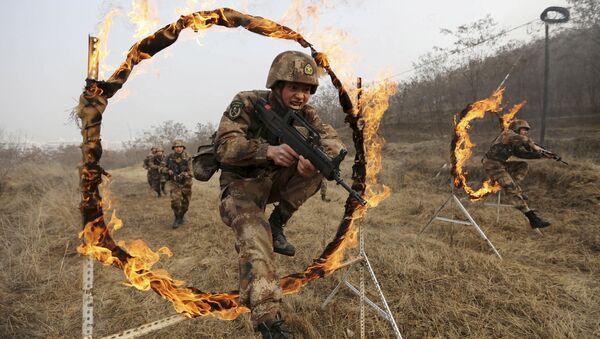Although the growth of China's defense budget slowed for the first time in years, the reason may not be simply a desire to cut slack amid a budget crunch as much as a limit to growth.
Prior to the budget decrease announcement, China reorganized its military districts by consolidating existing regions toward a national defense policy focused on external challenges and accordingly cut staff. At the same time, mega-projects for force projection over defense still appear far off for China.
"China, for the most part, has achieved one of its major military modernization goals: being able to contest a US or allied intervention in any one of its core territorial interests (think broadly Taiwan, the South and East China Seas)," Senior Fellow at the China Policy Institute Harry Kazianis wrote in the National Interest.
However, as Kazianis noted, moving to the next stage of global power projection would mean massive investments in next-generation weapons. Considering the Chinese military's current reshuffle and the budget crunch, the army-heavy structure with no organized rapid-response expeditionary branch (such as the US' Marines or Russia's Airborne Forces), it appears simply unready for a massive infusion of funding for a radically new project.



